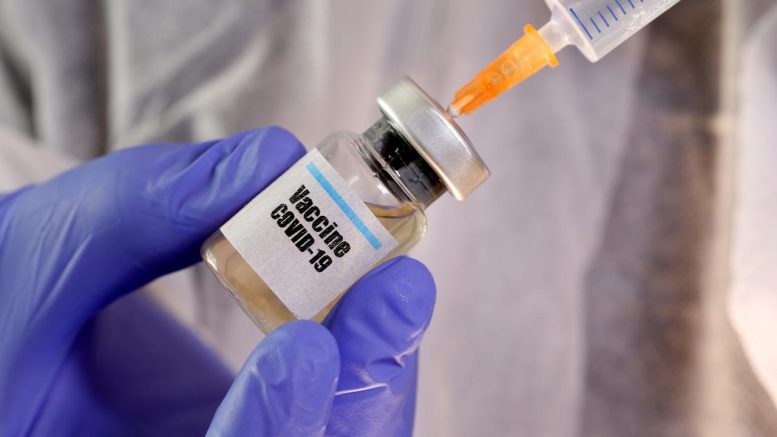The pharmaceutical industry plays a central role amid the ongoing Covid-19 pandemic, responding swiftly to the many challenges brought about by this novel virus and rallying quickly to enable the supply of key medicines.
With deaths and infection rates decreasing across Europe and a UK team’s recent discovery of dexamethasone as a viable treatment for the sickest patients, the pharmaceutical industries’ efforts should not be overlooked and will continue to play a leading role in the difficult months to come.
With the pandemic far from over and a second wave potentially on the horizon, now is the time to learn from our approaches to the current crisis and ensure the pharmaceutical industry is ready for any future outbreak. The lessons taken from the past few months will be critical in preparing for uncertain times ahead and, ultimately, will help to save more lives in the future.
Novel virus
Covid-19 is what is known as a novel virus. While in some ways similar to the viruses that caused the SARS outbreak of 2002-2004 and the MERS outbreak that began in 2012, Covid-19 has proven to be much more transmissible, with its presence in the vast majority of countries now confirmed.
Essentially, those charged with coming up with effective treatments or a vaccine have had to start from scratch, while contending with the various restrictions brought about by global lockdowns. Combined with a growing sense of panic amongst the general public and the subsequent need to move at breakneck pace to reach a solution, it is fair to say times have been tough.
However, there have been a number of success stories that underline the vital work that the pharmaceutical industry does, and it is these that should serve as examples of how to approach the future.
Relentless developments
The pace of developments since Covid-19 was confirmed has been relentless. Teams around the world are working furiously to develop an effective vaccine, with promising results seen already. As far as viable treatments are concerned, the evidence of remdesivir reducing patient recovery times shows significant promise, and the discovery of dexamethasone – a cheap, widely available steroid in use since the 1960s – in improving survival rates has led to the UK government approving it for immediate use.
The bottom line here is that speed and collaboration across the pharmaceutical community have been hugely beneficial in turning the tide against Covid-19, and will continue to be so in the ongoing battle. Any future pandemic will only be successfully beaten if pharmaceutical companies, experts, scientists and governments are willing to spring into action and work together for the common good.
Revolutionary data
Data analytics also play a central role in pharmaceutical operations, when it comes to Covid-19 and future pandemics. Indeed, when it comes to identifying the right treatments and approaches in a pandemic, insight from data is critical.
Data already provides the basis for the treatment of many diseases. However, there is more we can do to make data analytics processes sharper. When independent studies on a particular drug are carried out in one country, experts in other nations may be unaware that these studies exist if they do not have the ability to find and process vast amounts of data.
This is where emerging technologies such as AI and machine learning will make their mark. By automating data analytics and applying AI capabilities where possible, the management of large datasets becomes considerably easier, and insights can be drawn from this information much more readily. Finding ways to conquer data – coupled with the aforementioned collaboration between experts – will revolutionise the industry.
Supply and demand
One of the unfortunate lessons learned from the current pandemic was that, at the beginning of the crisis, many nations and their health services were underprepared when it came to having the right equipment and infrastructure in place to respond quickly. Testing for Covid-19 took a long time to get fully off the ground in the UK, and the early scramble for ventilators underlined the fact that the country had been caught off guard.
Logistically, the production of medicines is a major operation even outside of a pandemic. For example, a drug may be produced in India with raw materials developed in Japan, before being sent to a warehouse in Europe from which it is then distributed. This all needs to be carried out with the medicine’s short shelf life in mind.
To prevent these struggles from becoming a major issue in a future outbreak, the pharmaceutical industry needs to be prepared to act quickly to scale up production of key resources – such as specialised testing kits and new medicines as soon as they are needed.
This will also require governments and international health bodies to be much quicker in future in developing and implementing emergency procedures to scale up production when the need arises.
Future outbreaks
The pharmaceutical industry, by necessity, is a heavily regulated one. While the challenges of the pandemic have created a need for regulatory processes to be expedited in many cases, lockdown restrictions have made it more difficult for this to be done efficiently.
There are also inconsistencies across geographies in terms of if and how a state regulator will approve a particular treatment. For these problems to be ironed out and to prepare for future outbreaks, the pharmaceutical industry and the agencies responsible for regulation need to work more closely together to ensure responses can be better coordinated.
While positive steps have been made and struggles are easing, the pandemic continues to impact almost every aspect of human life. To combat current Covid-19 challenges and prepare for future outbreaks, the pharmaceutical industry must learn from its past mistakes and work to improve overall innovation, efficiency and collaboration.
Article by Vladimir Tkachenko at Amaxa-Pharma





